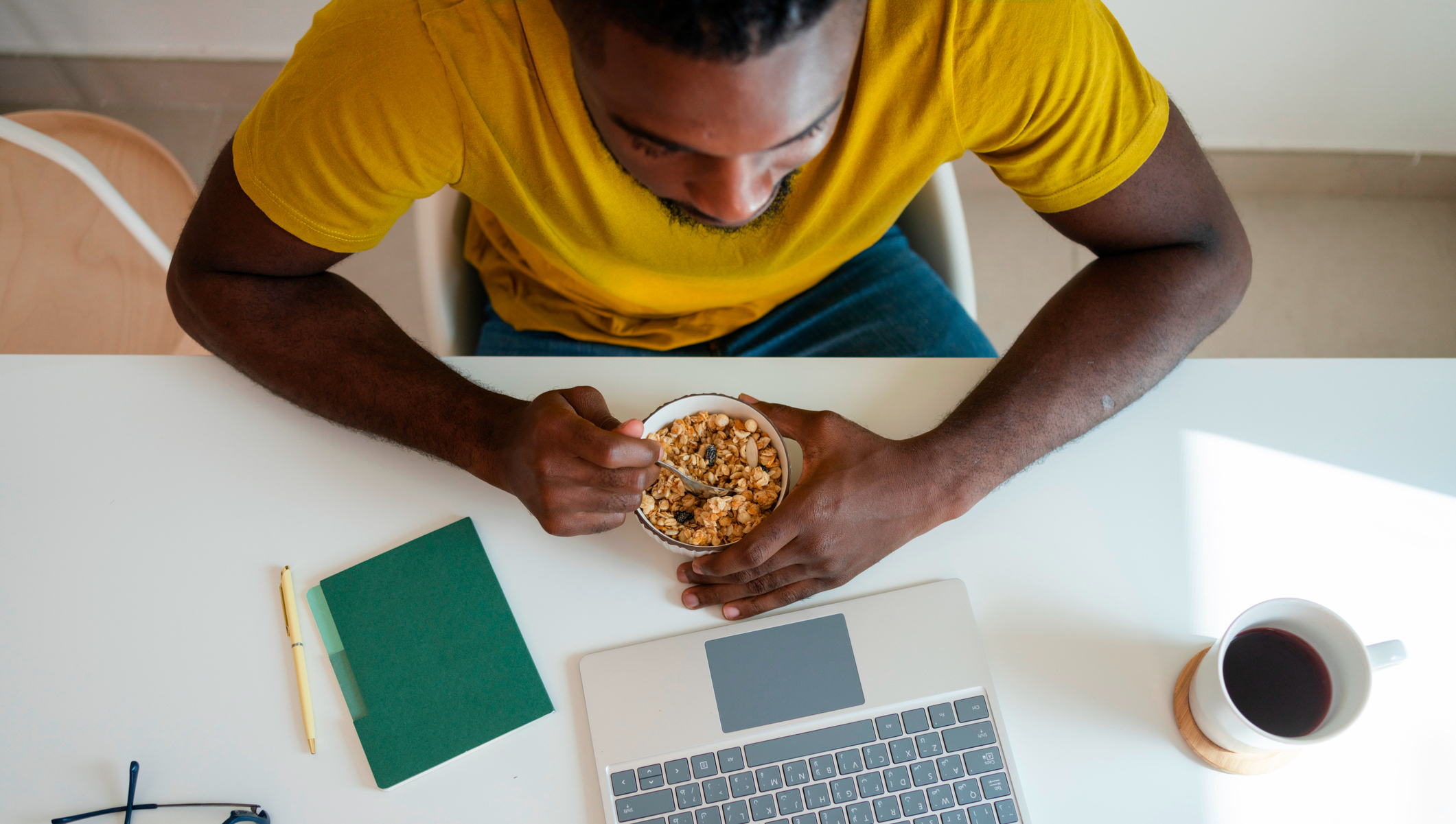The Most Common Snacking Mistake Seen By This Weight Loss Coach And How To Avoid It
It may seem obvious, but you should eat when you’re hungry

Most of us need a snack or two during the day and not only is it completely normal, it’s an opportunity. A well-chosen snack can stave off brain fog and give you the energy boost you need to keep going until the next mealtime, and it can also contribute to the nutritional variety of your diet. However, snacking has a naughty, indulgent aura around it (thanks, marketing) and when we’re trying to eat well it can be easy to assume it’s healthier to skip snacks altogether.
According to Emily Wood, clinical nutritionist and weight loss coach at Voy, a medicated weight-loss program in the UK, not snacking when we need to can lead to problems.
“The biggest mistake people make is trying to avoid eating when they are hungry,” says Wood. “People can feel that they shouldn’t be honoring their hunger cues.”
Why is that an issue? Because you may find yourself overeating or making bad choices later. “You’ll probably be more prone to choosing calorie-dense foods just because your brain’s seeking out higher-energy foods to compensate,” says Wood.
So how can we avoid falling into the trap of failing to realize we need a snack? “Listening to the body’s natural cues is the key to effective snacking,” says Wood. “A lot of people are a bit out of kilter with their hunger cues, especially when they’re busy.” To dial in to your hunger cues, it can be worth developing your own hunger scale, as explained in this guide to mindful eating.
As well as listening to your hunger cues—such as feeling hungry, thinking about food and getting distracted by the idea of food—it’s worth assuming you will need a snack at some point during the day. “I recommend planning for some nutritious snacks and making sure they are accessible,” says Wood. “Focus on whole, plant-based foods rather than conventional snack foods, and try to incorporate a variety of macronutrients, including protein, carbohydrates, fiber and fats into your snacks.”
It would be a mistake to choose something purely on its nutritional value though. “Choose snacks that you enjoy, too—not something that you find absolutely awful. So, for example, have some apple and peanut butter and maybe some dark chocolate on hand.”
Sign up for workout ideas, training advice, reviews of the latest gear and more.
Wood has provided some more examples of well-balanced snacks that she recommends to her clients.
- Chopped vegetables such as carrots, red pepper and cucumber with hummus and wholegrain pita bread
- Full-fat Greek yogurt with frozen raspberries, banana and honey, topped with mixed nuts or seeds
- Glass of milk with a bagel, nut butter and raspberries
When Is The Best Time To Have A Snack?
It may sound obvious but when you’re feeling hungry is probably a good time for a snack, and it’s best not to leave it too long, according to Wood. “It is beneficial to have something before you start to feel absolutely starving,” she says.
Everyone is different, so see what works for you. “There is a bit of trial and error involved,” says Wood. “If you’re always starving by 4pm then having a snack around 3pm might be a good way of making sure that you’ve always got a bit of energy and that your brain’s working at its best.”
That doesn’t mean it’s a good idea to be snacking at all hours of the day or night. “There is some evidence to suggest that snacking later on in the day—past 9pm—can be associated with less good health outcomes,” says Wood. “So try to avoid late-night snacking.”
But it will also depend on your activity levels throughout the day. “Snacking is really helpful with refueling after exercise,” says Wood. “Somebody who goes to the gym often might find that they need to have more meals across the day than the traditional three meals. Or they might have a bulkier snack or a second breakfast after a morning workout, perhaps including more carbohydrates and protein.”
Emily Wood is a clinical nutritionist and weight loss coach at Voy. She has a master’s degree from UCL in clinical nutrition and eating disorders. She specializes in weight management, supporting people with body positivity while helping them to achieve a healthy and happy body.
Voy is a weight loss program that includes clinically-proven medication, personalized programs and access to clinicians and lifestyle coaches.

Camilla Artault is a writer and keen runner. She has covered women’s running gear – testing leggings, jackets, running bras, tops and shorts – for Coach since 2018, as well as interviewing experts and writing about a range of health and lifestyle topics.
